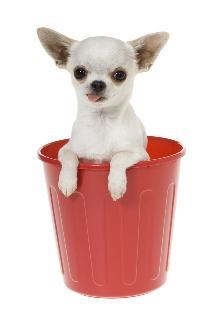Pet Proof Your Home

Our Top Tips for Pet-Proofing Your Home
One of the things that our newer pet owners have been asking us about frequently is pet-proofing the home. When you bring home that brand new puppy or kitten, or any new pet into the home regardless of age, you will definitely need to make some adjustments around the house for pet safety reasons. Our veterinary hospital sometimes sees Scarsdale pets that have eaten something harmful, or have destroyed items in the home. However, this can be easily avoided with some simple pet-proofing tips. Our veterinary hospital staff has come up with a list of the top tips for pet-proofing so you can avoid those disastrous situations in the home.
Our Animal Clinic’s Common Sense Pet-Proofing Guide
We always advise our pet parents to let common sense be their guide. A good general rule to follow is that you need to keep anything valuable or dangerous well out of your pet’s reach. However, it might be hard to think of every single potential danger so we have listed some you  may have forgotten.
may have forgotten.
-Make sure that all medication (both yours and your pet’s) is kept locked away. Pills bottles often sound like fun toys, but ingesting any medication can have potentially fatal effects.
-Don’t allow your pet to “counter surf.” Keep your counters clear, especially if your pet is tall or a jumper. This means that food and utensils should be placed in the refrigerator, drawers, and cabinets. A loaf of bread on the counter looks like a giant neon “TAKE ME!” sign to your puppy, so don’t tempt him.
-Keep your trash can in a secured area if possible; if not get a trash can with a lid that locks. Many pets will forage in the trash and spoiled food, excess food, and wrappers can be hazardous.
-Keep any and all cleaning products, pesticides, car products like antifreeze, beauty products, and any product that can be harmful if ingested far away from your pet’s reach. All cleaners and such items should be kept in cabinets or drawers that your pet cannot open.
-If you keep indoor plants, keep them out of your pet’s reach or they may become a quick snack (and could potentially make your pet very ill). Aloe, avocado, carnations, poinsettias, jade, corn, and philodendron plants are some of the common houseplants that are poisonous to cats and dogs. The ASPCA has an extensive list of harmful plants.
-Keep your dirty clothes hamper in an inaccessible area — some pets like to collect socks and other assorted items. Dogs that chew on clothing or other items can suffer intestinal blockages which are extremely serious and may require surgery.
We see pets from the Scarsdale, White Plains, and Westchester areas and welcome new patients. We look forward to your next visit to Central Animal Hospital!
Do you have any pet-proofing tips to add? Please tell us below!
